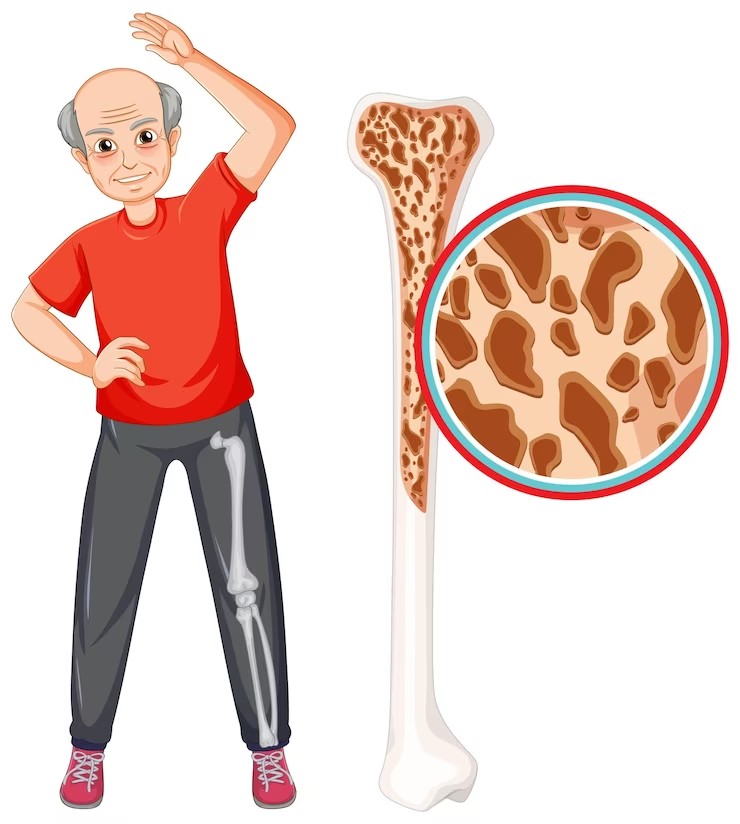Strong and healthy bones are essential for leading an active and fulfilling life. However, bone health is often overlooked, particularly among men. In South Africa, where the prevalence of conditions like osteoporosis is rising, it is crucial for men to prioritize their bone health. By understanding the factors that influence bone density and adopting certain lifestyle habits, South African men can promote and maintain healthy bone density for years to come.
- Get Sufficient Calcium and Vitamin D: Calcium and vitamin D are vital nutrients for building and maintaining strong bones. Including calcium-rich foods in your diet, such as dairy products, leafy green vegetables, and fortified foods, can help meet your calcium needs. Additionally, exposing your skin to sunlight for about 10-15 minutes a day can provide a natural source of vitamin D. If sunlight exposure is limited, consider adding vitamin D supplements to your routine after consulting with a healthcare professional.
- Engage in Weight-Bearing Exercise: Weight-bearing exercises are particularly beneficial for bone health as they help stimulate bone growth. Engaging in activities such as jogging, dancing, hiking, and weightlifting can promote healthy bone density. Aim for at least 30 minutes of weight-bearing exercise most days of the week to reap the benefits.
- Limit Alcohol Consumption: Excessive alcohol consumption can have detrimental effects on bone health. It interferes with the body’s ability to absorb calcium and negatively affects bone formation. If you drink alcohol, do so in moderation. The South African guidelines recommend that men limit their alcohol intake to two standard drinks per day.
- Quit Smoking: Smoking is not only harmful to your lungs and heart but also has adverse effects on bone health. Smoking reduces bone density and increases the risk of fractures. Quitting smoking can help improve your bone health and overall well-being. Seek support from healthcare professionals or support groups to kick the habit for good.
- Maintain a Healthy Body Weight: Maintaining a healthy body weight is essential for bone health. Being underweight or overweight can increase the risk of bone-related problems. Strive for a balanced diet that includes a variety of nutrient-rich foods and engage in regular physical activity to maintain a healthy weight.
- Get Regular Bone Density Check-ups: Regular bone density check-ups are crucial for assessing your bone health and identifying any potential issues early on. Men over the age of 50, in particular, should consider getting a bone density test called Dual-Energy X-ray Absorptiometry (DEXA). This painless procedure helps evaluate bone density and assess the risk of osteoporosis.
- Consider Supplements if Needed: In some cases, dietary supplements may be necessary to support bone health. If you are unable to meet your nutrient requirements through diet alone, consider consulting with a healthcare professional to determine if supplements such as calcium, vitamin D, or other bone-supporting nutrients are necessary.
- Prioritize Safety Measures: Preventing falls and injuries is essential for maintaining healthy bones. Make sure your living environment is safe by removing hazards, installing handrails, and using appropriate lighting. Engaging in activities that enhance balance, such as yoga or tai chi, can also help reduce the risk of falls.
- Seek Professional Advice: If you have concerns about your bone health or need guidance on adopting a bone-friendly lifestyle, consult with a healthcare professional. They can provide personalized advice, conduct necessary tests, and help you make informed decisions regarding your bone health.
By following these guidelines, South African men can promote and maintain healthy bone density, reducing the risk of fractures and debilitating conditions like osteoporosis. Prioritizing bone health today will ensure a stronger, healthier future, allowing men to enjoy an active and fulfilling life well into their senior years.










